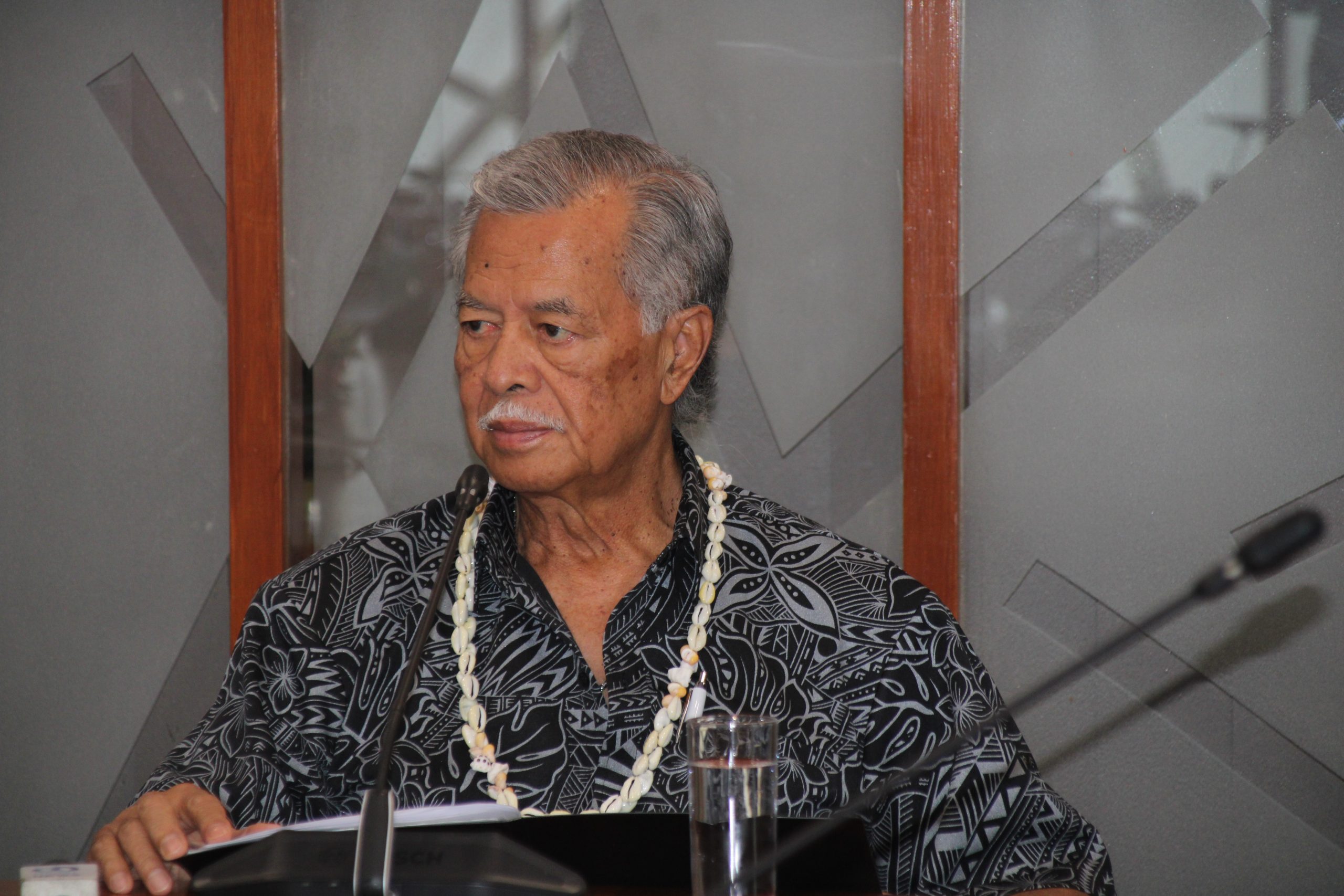Japan has started releasing treated nuclear wastewater from the Fukushima Daiichi Nuclear Power Plant into the Pacific Ocean on Thursday at 1pm Japan Time (4pm Fiji Time), despite diverse views and opinions both from Pacific and abroad.
The Tokyo Electric Power Company Holdings (TEPCO) said it plans to carry out the first round of release continuously around the clock for 17 days to discharge 7,800 tons of the radioactive wastewater.
The TEPCO spokesman, Junichi Matsumoto stated, “If we see any failures in our system or any problems, we will halt the release immediately.”
Over the next 20 to 30 years, the company intends to gradually discharge more than one million tons of water into the sea.
Treated water is released from the Tokyo Electric Power Co (#TEPCO) Fukushima Daiichi nuclear power plant into the ocean on Thursday in Okuma, #Fukushima, Japan. Over the next 17 days or so, TEPCO will release about 7,800 tons of treated water. pic.twitter.com/gbGASAbRCR
— China Daily (@ChinaDaily) August 24, 2023
In a press conference in Suva Thursday, the Pacific Islands Forum Secretary General, Henry Puna said the Forum is assured by the commitment made by the Prime Minister of Japan and should there be any problem with the release, the Forum will hold Japan “accountable”.
“The Forum Secretariat has worked with all Members to pursue different avenues over the last three years to urge Japan to take all steps necessary to address any potential harm to the Pacific, and to take all appropriate measures within its territory, jurisdiction and control to prevent transboundary harm to the territory of another state, as required under international law.
“By the same token, we have relied on Japan’s assurances that discharge will not take place if it is not verifiably safe to do so, as well as their commitment to ensuring that any release would not be allowed in a manner that endangers the lives of Japanese citizens or those of the citizens of Pacific Island countries.
“We will continue to hold them to that commitment and trust me, we will not fail in holding them to that commitment,” SG Puna affirmed.
Puna said the highest priority has been placed on the Fukushima nuclear wastewater issue, aligned to the positions pronounced by Forum Leaders.
“Indeed, Forum Leaders have prioritised the importance of international consultation, international law, and independent and verifiable scientific assessments, in view of the Rarotonga Treaty and our nuclear testing legacy that continues to affect our people and environment, 80 years on, and which gives rise to our acute awareness in the Pacific region of the threats posed by nuclear testing and contamination.
“It remains clear however that there continues to be divergent views and responses in the international community and within the Forum Membership on this issue, and I recognise the sovereignty and prerogative of Forum Members to determine their own national positions.
“These developments continue to fuel our unwavering commitment to addressing this unprecedented issue,” he said.
In this respect, the Forum Secretariat will continue to strive to provide the latest information and updates to the upcoming Forum Foreign Ministers Meeting on 15 September for further discussion and consideration, and from there to the PIF Leaders Meeting in the Cook Islands on 10 November.
The Forum Secretariat will continue to facilitate ongoing dialogue with the Government of Japan and the IAEA to ensure that Forum Members are aware of the latest information and updates.
“This will not be the first nor last time we will have to deal with these issues.
“I remain dedicated and committed to driving our collective interests, and I am confident that we will be able to move forward for the benefit of all states, and present and future generations who share the Pacific Ocean as our home and livelihood.
“I am assured, and our leaders are assured by the commitment and guarantee from IAEA. They will be establishing a presence on the ground in Fukushima to continually monitor the safety of the water that is being released,” the Forum leaders said.
As a part of the International Atomic Energy Agency’s (IAEA) ongoing safety assessment of the wastewater release, the team from the IAEA is on-site to observe the discharge process and assess Japan’s application of all relevant international safety standards for the water discharge,” said SG Puna.
As #Japan starts releasing treated water from #Fukushima Daiichi nuclear power plant today, IAEA @RafaelMGrossi explains in this video how our monitoring tool provides live data on the release.
📊 https://t.co/7Z4nzqk36R pic.twitter.com/ZSVMB9hDTm— IAEA – International Atomic Energy Agency ⚛️ (@iaeaorg) August 24, 2023
IAEA Director General Rafael Mariano Grossi said IAEA experts are there on the ground to serve as the eyes of the international community and ensure that the discharge is being carried out as planned consistent with IAEA safety standards.
“Through our presence, we contribute to generating the necessary confidence that the process is carried out in a safe and transparent way,” he said.
Additionally, the IAEA has introduced a webpage to offer real-time data from Japan regarding water discharge. The provided data includes water flow rates, radiation monitoring results, and tritium concentration after dilution.
SOURCE: PASIFIKA ENVIRONEWS/PACNEWS














